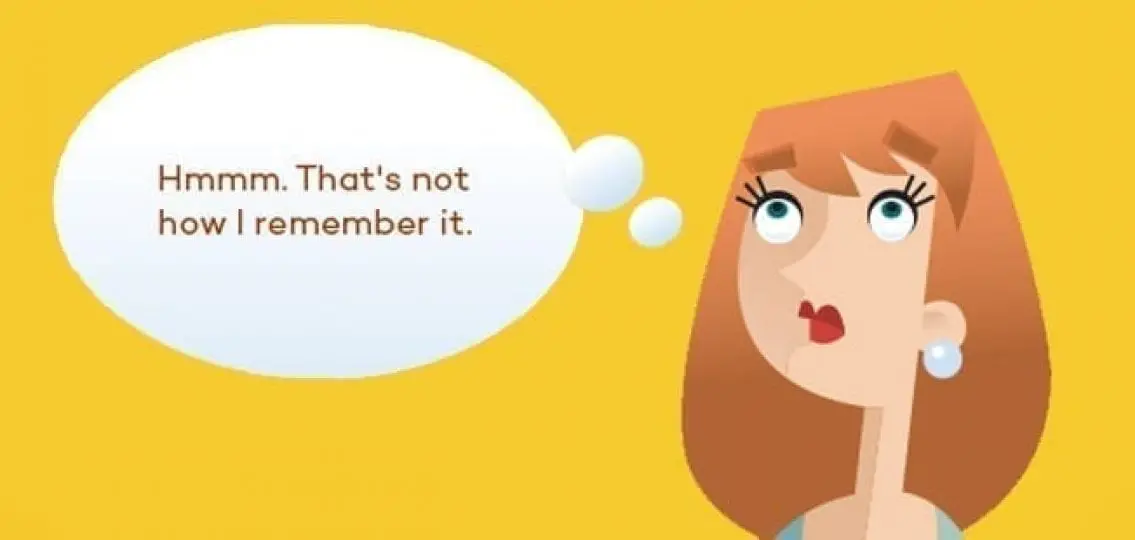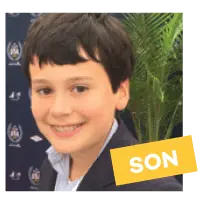That’s Not What Happened!
TEEN | Aidan Kohn-Murphy
Memory is a hot topic in my family, always leading to heated debates.
I’m convinced that I have a better memory than my mom. She will mistakenly say something, and when I correct her, she tells me that I’m misremembering. Once, when I was seven, she told me that Jesus died in 2008. But she denies ever having said this.
My parents also seem to think I forget the things they’ve asked me to do. I promise I hear my parents. But when they remind me to do something, I was just getting around to doing it. (Okay, I may just not want to do it. Or I may have forgotten. Maybe I’m giving myself too much credit here.)
Parents And Teens Have Different Memories
When it comes to memories of events, though, I’m sure my memory is more accurate. When I was five, my family collected the mail for an across-the-street neighbor. My father wanted to teach me how to cross the street when I was not at a crosswalk. (Or he was just being lazy about walking to the corner. The mystery remains.)
I safely crossed and gave the mail to the neighbor. On my way back, my father stood across the street, telling me when it was safe to cross. “Go, go, go!” he screamed (as I remember). He now remembers screaming, “No, no, no.” The car sped and ran over my foot.
Eight years later, the debate about those three words continues.
Aidan Kohn-Murphy, 13, is an 8th grader at Georgetown Day School in Washington, D.C. A former SI for Kids reporter, Aidan loves writing and sports. When not focusing on either, he can be found listening to eighties music, reading, and following politics.
PARENT: Laurie Kohn
When it comes to memory problems, I have to admit that Aidan might have a better memory than I do. Is it because mine is filled with the endless self-replenishing to-do lists that come with parenting two boys? It might be because of all the sleep I lose trying to deplete those to-do lists. Or is it because I’m pushing 45?
Whatever the reason, I’m afraid he has surpassed me in his ability to store and access facts. He retains everything about history (details about the Haitian Revolution), sports trivia (the names of every pitcher in the MLB), and media minutia (he can recite verbatim episodes of 30 Rock). I can rarely go toe-to-toe with him on any trivia.
Still, I am confident I didn’t tell him that Jesus died in 2008. He has, however, correctly observed lapses in my memory about punishments I gave to his brother and then forgot to enforce. Ironically, Aidan is mysteriously less attentive in pointing out his own forgotten punishments—like when I forget that he has lost his iPhone privileges for the day.
Despite his strong memory, there are two areas in which I wish he would recognize my competence—and perhaps only his developing competence. First, that aforementioned to-do list? The action items that I am certain I have delegated to him somehow slip his otherwise ironclad mind. Second, I do happen to know a thing or two that he still hasn’t learned and might be interested in. It might be even more exciting to hear it from me than to read it on Wikipedia.
Laurie Kohn is a law professor at George Washington University Law School. She teaches and practices family and domestic violence law. In addition to being a journalist mom to Aidan, she is a baseball mom to 10-year-old Caleb.
EXPERT: Tori Cordiano, Ph.D.
Most parents can empathize with Laurie about these kinds of occasional memory problems. And with the never-ending to-do lists, who could possibly blame them?
Teens do have a leg up on remembering factual information and vivid details of their earlier childhoods. Though we’ll never know for sure about what Aidan’s dad yelled out that day. But parents do have something to offer than teens can’t yet match. Parents bring to the table a wealth of life experiences—some that occurred before they even had children.
Parents have wisdom that comes with a lifetime of accumulated memories. But how is a parent to share this valuable information with a teen who is reluctant to listen? It helps to remember that teens (and most adults) will shut down at the first whiff of a lecture. But the casual sharing of memories, such as, “Yep, I remember noticing that when I studied abroad,” or “One of the things I loved most about high school was…” may open the door to a rich conversation without the pretext of your teen getting something out of it.
And those to-do list items that always seem to be forgotten? It might help to get creative with how they’re communicated—would your teen prefer a text or a calendar reminder rather than constant verbal instructions? And a light “I know you remember about that pile of laundry—what’s your plan for getting it done before practice tonight?” gives teens credit for remembering the item and a gentle nudge to get it done—on the rare chance they did forget.







